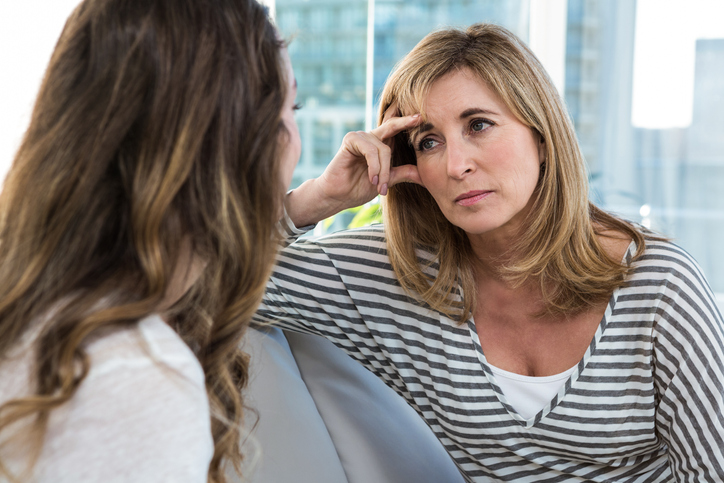9 Ways Your Vagina Changes as You Age
Ageing is inevitable and menopause can bring some unwelcome changes to your body.

Ageing affects everything, and your vagina is no exception.
Once you get close to menopause, its parts don’t look or function the same they did when you were younger.
Dryness, drooping, and a lack of lubrication are all issues at this stage of life. These changes are natural, though their effects on your bathroom habits and sex life may not be welcome.
1. Dryness
It is oestrogen that keeps the tissues of your vagina healthily plump and moist so when those levels drop the sensitive tissue is affected.
Dryness is one of the more distressing symptoms of menopause as it can make sex uncomfortable or even painful.
Having sex regularly helps to keep up the moisture you still have, as can using a water-based lubricant to reduce friction.
You may find a combination cream of oestrogen and progesterone used vaginally can help, or an oestrogen only cream if the dryness is severe, or you have atrophy.
2. Less hair
Your hair goes through natural cycles where it grows for a period of time and then falls out. As your hair gets older, its growth cycle shortens.
At the same time, a drop in oestrogen and progesterone may also see an increase in testosterone and that can fuel hair loss.
When more hair falls out than your body can replace, you’ll start to see areas of thinning. It happens on your scalp, and it happens down below, too.
3. Looser skin is happening
Skin tone gets worse because of the age-related loss of elastin and collagen — proteins that once kept it tight.
That’s true for the skin on your face as well as your labia — the folds on either side of your vagina.
4. Drooping starts
The muscles of your pelvic floor act like a sling that supports your uterus, bladder, rectum, and the top of your vagina.
Childbirth and menopause weaken these muscles, which can make the organs in your pelvis droop. This is called prolapse and sometimes an organ falls all the way into the vagina and creates a bulge.
Medical procedures can give your pelvic organs a lift and treat prolapse.
5. Grey hairs appear
Your pubic hair turns grey for the same reason that the hair on your head does.
As you age, the pigment cells inside each hair follicle die and stop producing the chemical melanin that gives your hair its colour. As melanin production slows, your pubic hair turns gray or white.
6. Shrinkage occurs
The loss of oestrogen around the time of menopause makes the once-stretchy tissues of your vagina thinner and less elastic.
Maintaining a healthy sex life will keep your vagina loose and limber.
7. Sex hurts
Dryness plus thinning of tissues in the vagina add up to painful penetration. Over time, the delicate tissues can tear and bleed.
Don’t let fear of pain keep you from a healthy sex life. When you avoid sex, it can make the problem worse. Use a water-based lubricant and additional oestrogen vaginally to help.
If you are experiencing bleeding post menopause this should always be reported to your doctor.
8. Changes to your vulva
You may not be well-acquainted with your vulva — the opening and outer lips of your vagina. But self examination with a mirror will show that it’s probably paler than it used to be.
The lighter colour is due to reduced blood flow from lower oestrogen levels. The inner lips have shrunk for the same reason, and they may be drier than they were before.
9. UTIs can increase
Sudden urges to use the bathroom or pain when you pee could be signs of a urinary tract infection (UTI).
Your vagina is home to lots of bacteria both good and bad. The loss of oestrogen around menopause changes the balance so you have more bad bacteria than good. That’s why women have more UTIs as they age.
Helpful information:
In women the hormone relating to libido and sexual desire is progesterone, but if you are also experiencing dryness or discomfort then you are going to need some oestrogen as well.
If it is just normal dryness, then a combination cream such as 20 to one can be helpful, but if the dryness is more severe or is vaginal atrophy that always needs a separate oestrogen cream.
Loss of libido is also common at menopause, and progesterone is the hormone behind sex drive in women, so ensuring you have a good levels is important.
Libido can be tricky to get right, as there are a number of factors implicated, but it is possible to boost your libido naturally through diet.
This article can certainly be helpful for some dietary ideas.
https://anna.blog.wellsprings-health.com/best-foods-to-boost-libido/


















